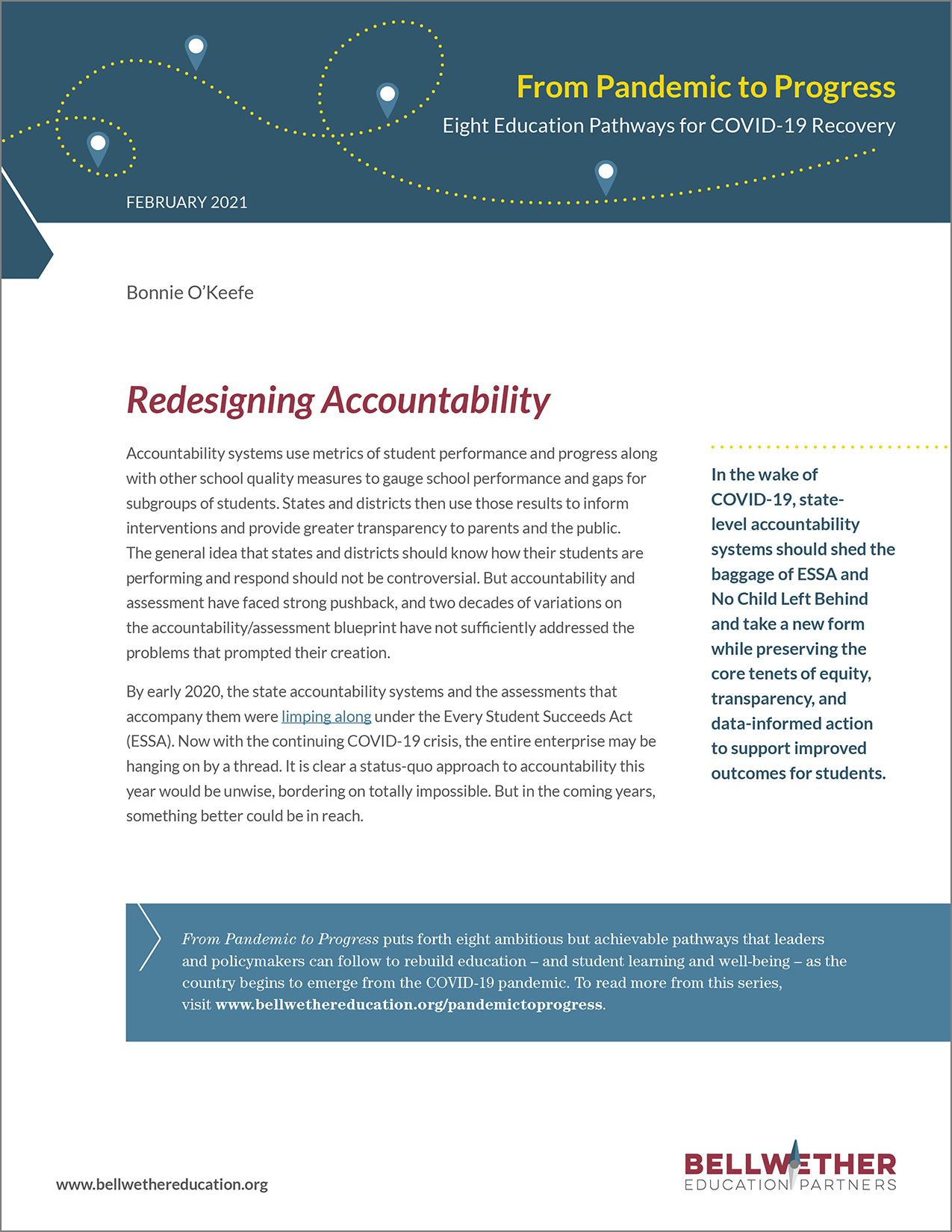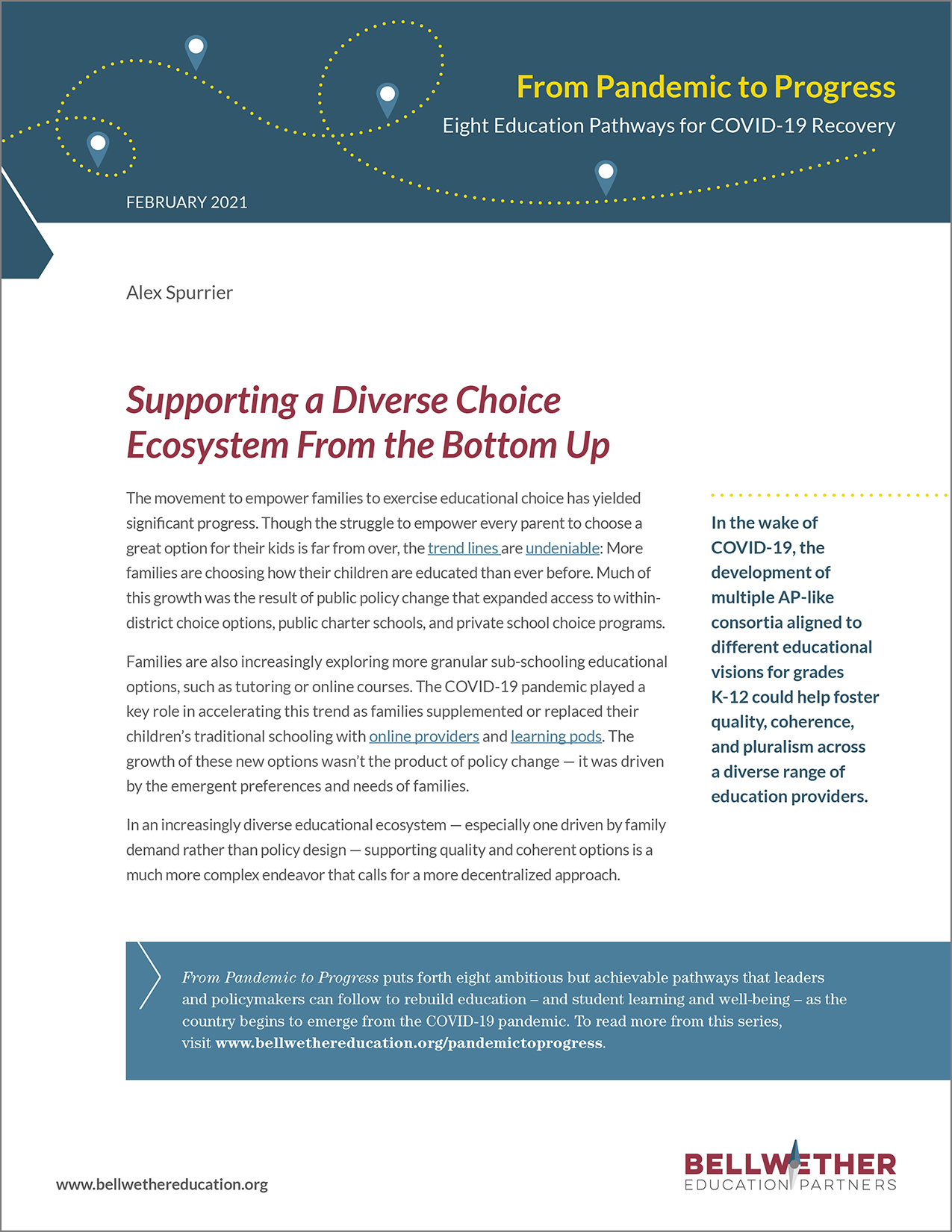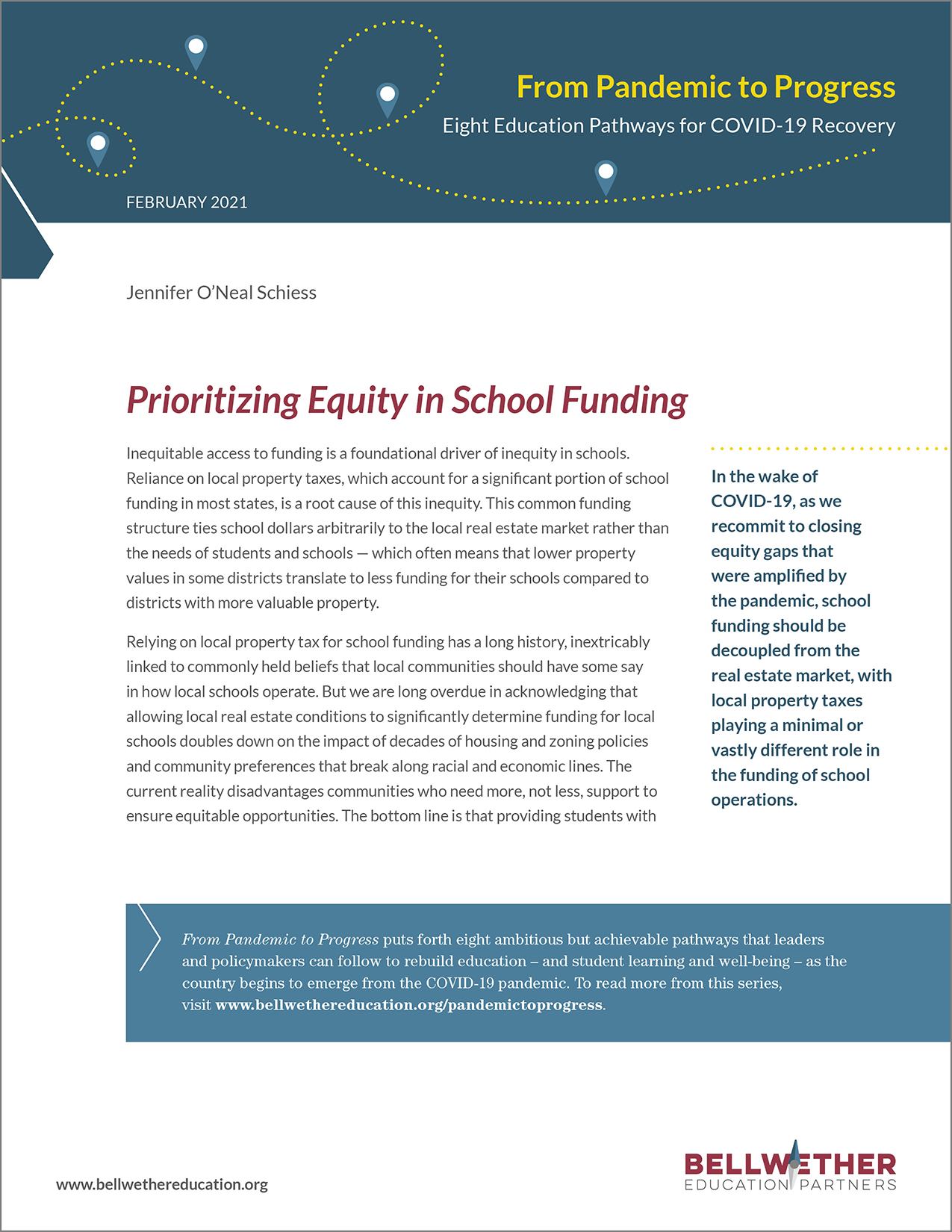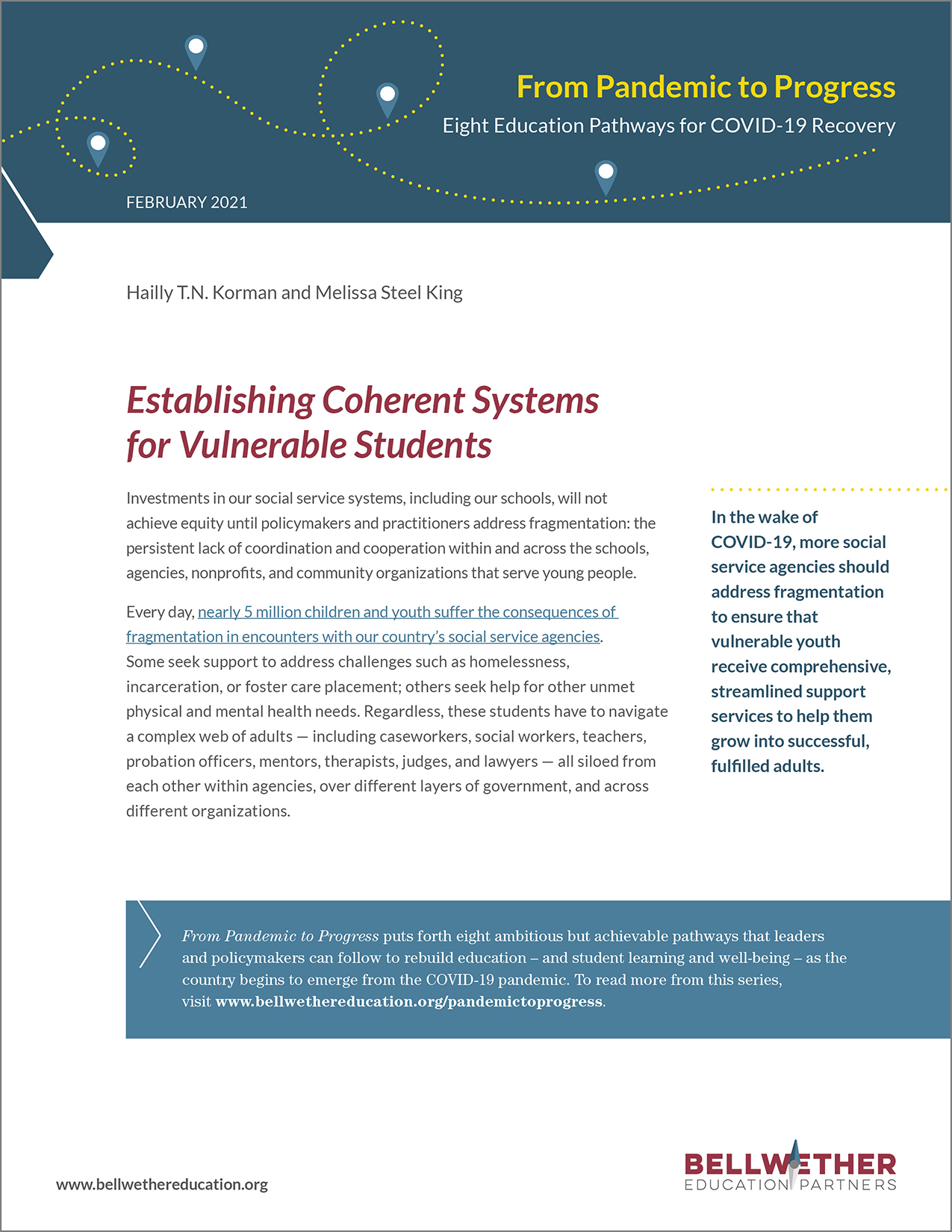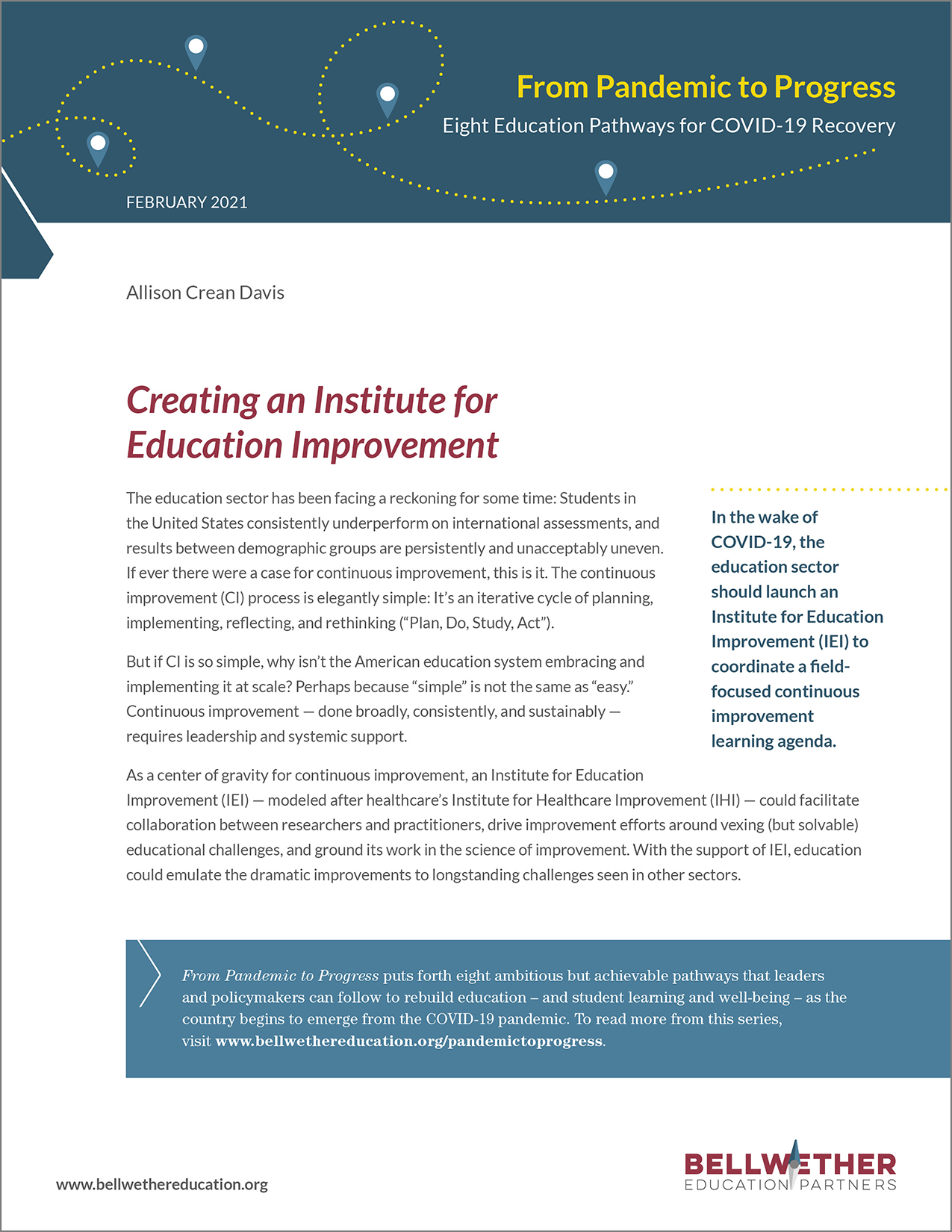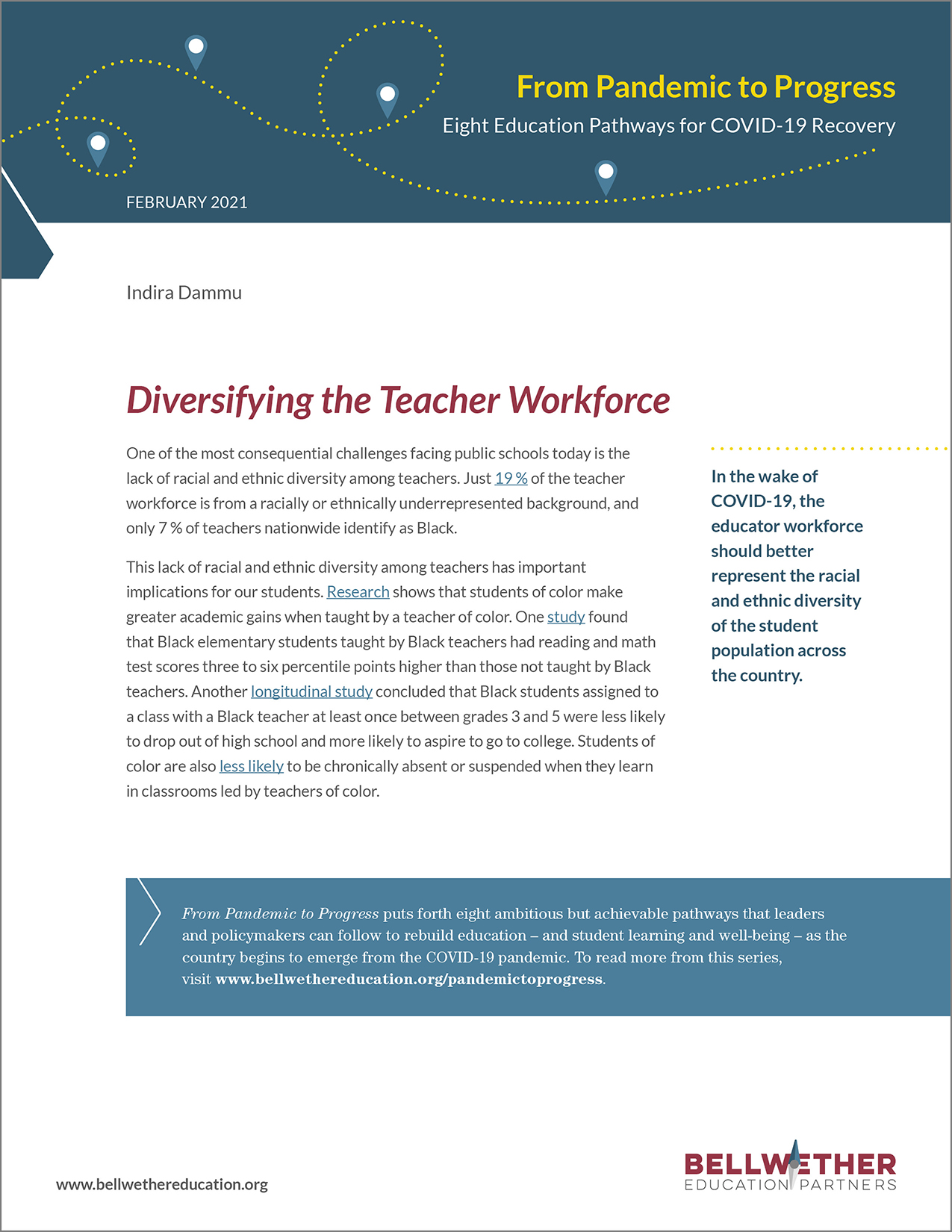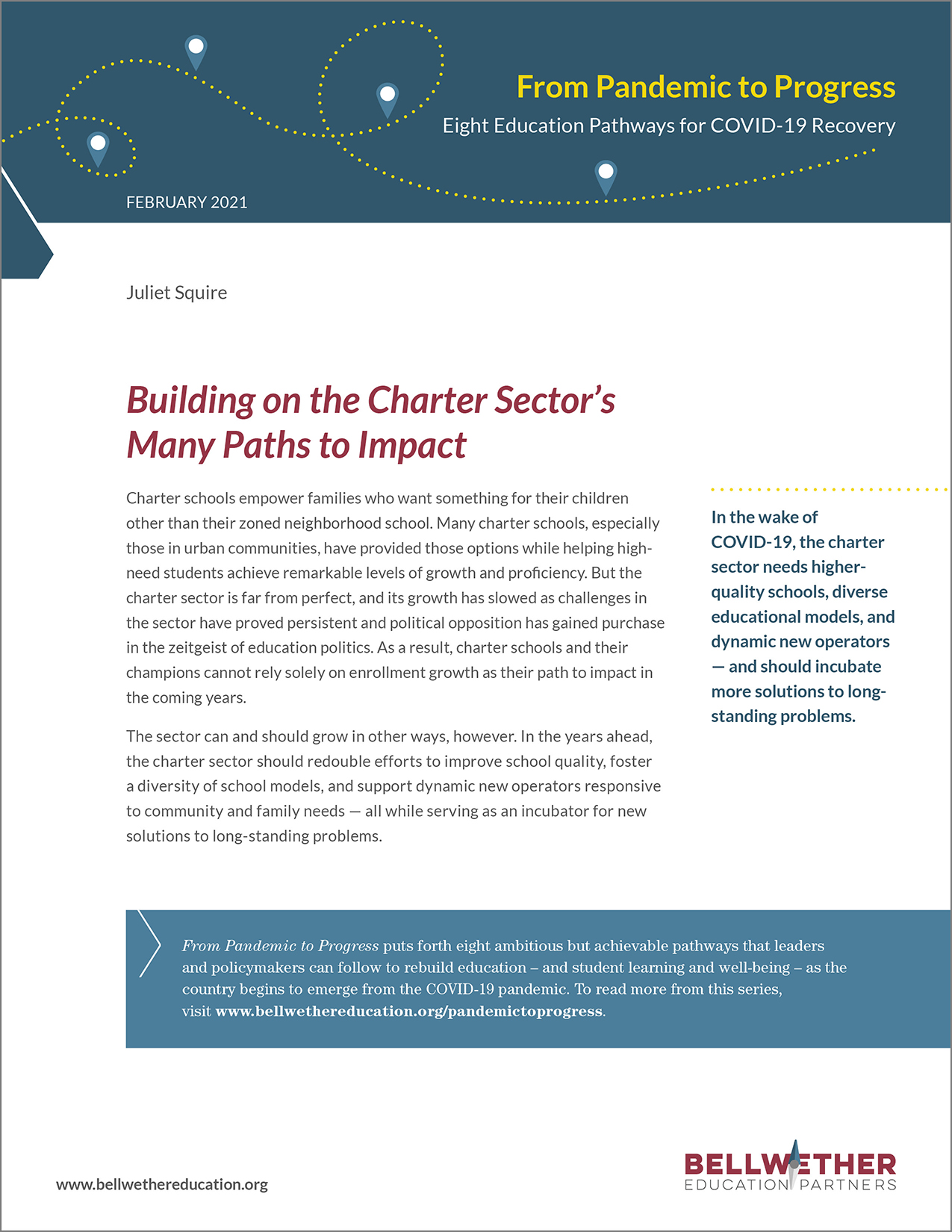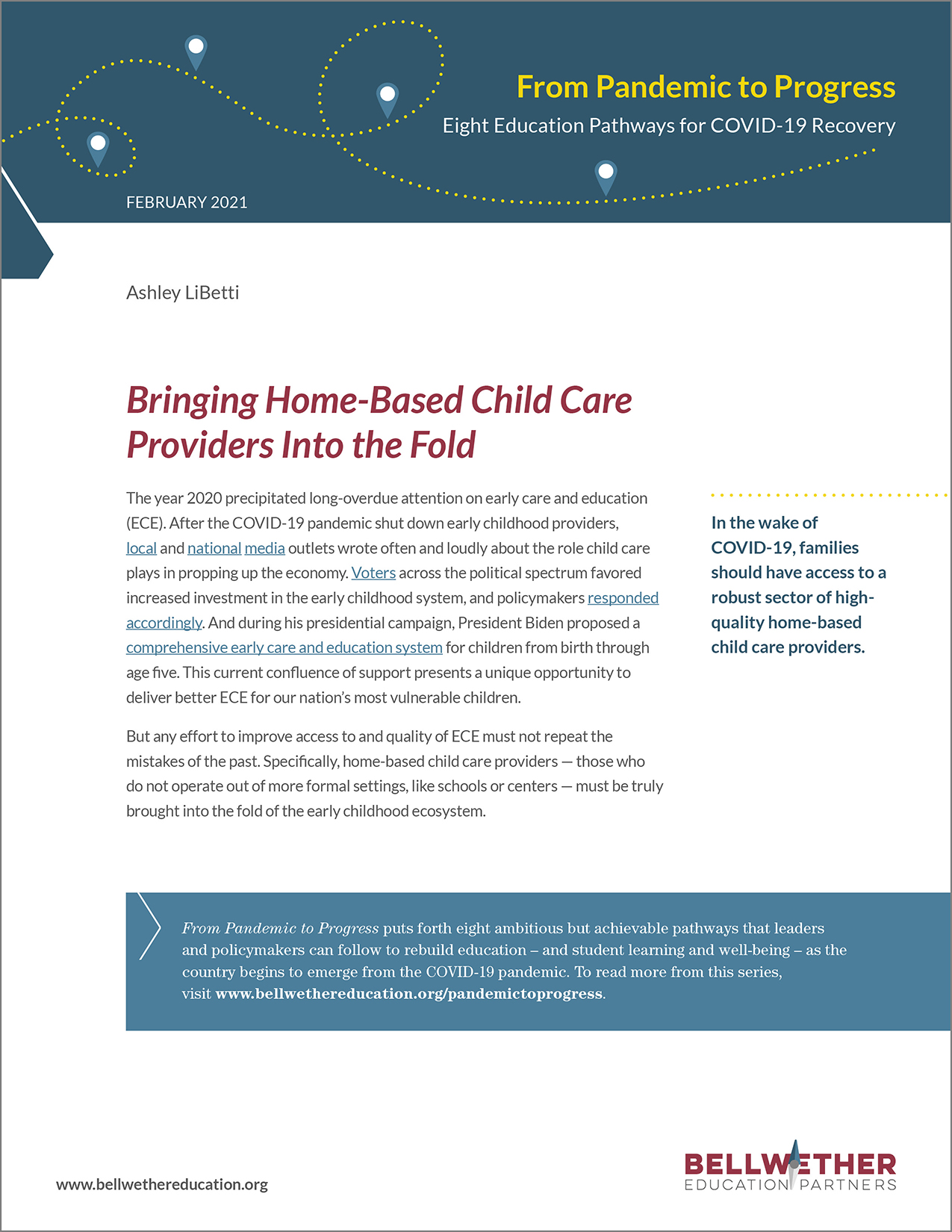COVID-19 has presented new challenges for schools and families to grapple with when it comes to student learning — but the pandemic also has illuminated shortcomings and missed opportunities that have long been present in our education system. Now, nearly a year after schools across the country first shut down due to the pandemic —and as more communities eye the possibility of a return to full-time, in-person learning — a new series of briefs from Bellwether offers guidance on how the education sector can recenter and rebuild in the wake of COVID-19.
From Pandemic to Progress: Eight Education Pathways for COVID-19 Recovery puts forth a suite of ambitious but achievable pathways for education leaders and policymakers to follow to re-engage in complex policy questions and rebuild education as the country begins to emerge from the pandemic. Drawing on the breadth of Bellwether’s unique expertise and diversity of viewpoints, this series offers a take on what we’ll need in the years ahead to create a sector that can provide students with the high-quality education and supports they need and deserve to be successful.
Whether addressing a long-standing issue that has shaped the education reform debates for decades, or an issue that has yet to garner the attention it deserves, each brief lays out a long-term vision for success and pathways to get there. Here are the issues and areas where From Pandemic to Progress argues the sector should not go back to normal:
- Redesigning Accountability: Bonnie O’Keefe grounds the debates on assessment and accountability back in core principles and practicalities. She doubles down on the need for transparent data and subgroup reporting, but also challenges policymakers to create systems that are aligned to the realities of classroom instruction and school-based decision making.
- Supporting a Diverse Choice Ecosystem From the Bottom Up: Alex Spurrier lays out a vision for fostering choice and enabling a diversity of educational approaches, by seeding consortia of assessments, similar to Advanced Placement, that ensure the quality but not the homogeneity of options.
- Prioritizing Equity in School Funding: Jennifer O’Neal Schiess pinpoints the inequities in school funding and explains why it should be decoupled from the real estate market, with local property taxes playing a minimal or vastly different role in the funding of schools.
- Establishing Coherent Systems for Vulnerable Students: Hailly T.N. Korman and Melissa Steel King stay laser-focused on students who have experienced homelessness, foster care, pregnancy, or other disruptions to their education and call on public agencies to address the confusing fragmentation of social services so students can receive comprehensive and streamlined support.
- Creating an Institute for Education Improvement: Allison Crean Davis makes a case for changing the way we change, calling for a standalone entity that can champion and support the education sector in rigorous, data-driven approaches to continuous improvement.
- Diversifying the Teacher Workforce: Indira Dammu reminds us of the research that links a diverse teacher workforce to improved student outcomes, and makes recommendations for how policymakers can support the recruitment and retention of teachers of color.
- Building on the Charter Sector’s Many Paths to Impact: Juliet Squire acknowledges headwinds facing charter school growth, but reminds policymakers and practitioners of the many ways — beyond increasing enrollment — that charter schools can expand their impact.
- Bringing Home-Based Child Care Providers Into the Fold: Ashley LiBetti shines a spotlight on the critical role that home-based child care providers play in caring for the country’s youngest children, a role that the pandemic further dramatized; she makes the case for policies that address the important role that home-based child care plays in the early childhood ecosystem.

